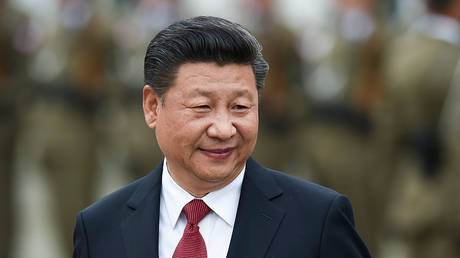
Remaining in the game may be strategically wise even in the face of near-certain vetoes by US allies
The United Kingdom recently struck a deal to join the Comprehensive and Progressive Agreement for Trans-Pacific Partnership (CPTPP) trading bloc, and China is also applying for membership.
The trade agreement, which includes a number of Asian, Pacific and Americas-based countries, was initially designed to be a counterweight to China by the United States, before the Trump administration withdrew from it in 2017.
The agreement has again become an object of geopolitical competition, with Japan having kept it alive without the US, and with post-Brexit Britain having decided to join in 2020 as part of its “Indo-Pacific tilt.” Britain joining the organization is purely for political reasons as it will bring minimal economic benefits by adding its paltry 0.08% to annual GDP growth. London’s efforts are a strategic bid to contain China, which applied to join the CPTPP in September of 2021, followed by Taiwan’s bid as a clear spoiler effect.
China’s effort to join the trade agreement designed specifically by the US to counter it was a strategic gambit which came days after the announcement of the AUKUS (Australia-UK-US) security pact. In the midst of growing military encirclement efforts against it, China has seen greater security in committing itself to deeper economic integration with the broader region around it, aiming to offer greater access to its markets as an incentive.
However, the US has often urged its allies to reject these kinds of overtures and undermine them where possible by exploiting geopolitical wedges. A recent example is Ursula Von Der Leyen’s China speech, which struck a hawkish tone and hinted at shelving the unratified Comprehensive Agreement on Investment (CAI) following seven years of negotiations. As the geopolitical climate has shifted, China’s ability to make new agreements with blocs containing Western countries has subsequently encountered enormous obstacles imposed indirectly by the US, which seeks to contain its rise where possible and demand conformity amongst allies.
Therefore, this reality paints a bleak picture for China’s hopes to join the CPTPP. Even though the US is no longer itself part of it, the group is dominated by America’s allies which at Washington’s request will strive to veto Beijing’s entry, and it only takes one state to do so. The hurdles it must pass include Australia, Canada, New Zealand, Japan and now, of course, the UK.
Britain is known to act as a “spoiler” or “poison pill” in multilateral settings to push the American agenda, often with total disregard of other states and to provide a “check” against other, less loyal US allies. The most telling example of this was the role the UK played in undermining peace talks between Ukraine and Russia a year ago, being the single largest advocate of perpetuating the war in Europe.
The hostile anti-China climate created at home, especially hawkish rebels like Iain Duncan Smith, make it improbable that Prime Minister Rishi Sunak could ever find the political space or will to accept China into the CPTPP. Even in the unlikely event he did, there is little chance Beijing could make it past the other hurdles.
As another example, Canada and Mexico have a free-trade agreement with the US, the USMCA, which allows one of the parties to kick another out should it enter into a similar agreement with a “non-market economy,” which is exactly how the US sees China. Ultimately, all it takes is one country to say no to China’s bid, and unfortunately there is more than one country willing to do Washington’s bidding.
China’s best approach to the CPTPP may be to try and weaken its influence with a counter-play. If certain pro-US states block China’s entry, then Beijing could seek to formulate new bilateral economic deals with those states within the agreement that are more amicable to China, and therefore use its market size and strength to make the CPTPP obsolete. These countries include Singapore, which is the biggest advocate of China joining the CPTPP, New Zealand, which is the only member of the Five Eyes intelligence alliance (others include the US, the UK, Australia and Canada) willing to deepen ties with Beijing, as well as Malaysia, Peru, Chile and Vietnam, which is not in a position to reject economic ties with China. These countries will also be important for Beijing as guarantors to ensure that Taiwan is kept out of the agreement, with Taipei trying to insert itself into the CPTPP as a wedge purely to counter China.
When viewed in this light, China has made the right decision not to shun the agreement, but to pursue negotiations, regardless of the final outcome. China may not be successful in joining the CPTPP, but there is plenty to gain diplomatically by attempting it. In the end, preventing the creation of a bloc of economies steered to counter Beijing, which is what the UK is striving to push, or hobbling the influence of such a bloc, may be a more realistic option. Likewise, China may look to make feasible concessions to the other Five Eyes to make them soften their pro-US stance and open its economy further. However, those possibilities remain to be seen. It will be tough, but it is important to be in the game and compete, rather than sit on the sidelines like the US has chosen to do, and might very well improve Beijing’s position in the end.




